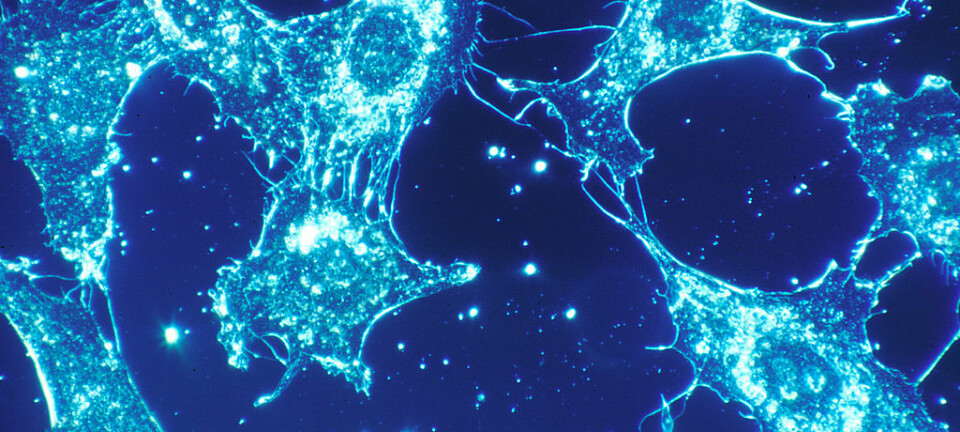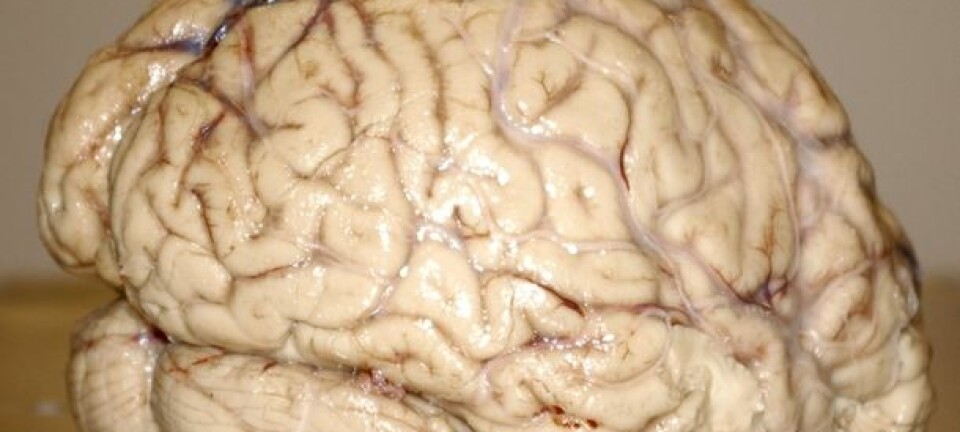
DNA copies reveal how healthy you are
The number of DNA copies left in our bodies reveal how our mental and physical heath will decline, study shows.
In popular terms, mitochondrion are our cells’ ‘powerplant’. They produce the energy the cells need to function. If the mitochondrion do not function optimally the cells also perform badly, impacting on our bodies and brains.
A new Danish study published in Human Genetics now shows that the mitochondrion of our cells contain copies of DNA and that the number of these copies correlate with how long we can expect to live, the strength of our muscles, and also our cognitive performance.
According to the study, people with a low DNA copy count have the shortest life span, and are quicker to experience mucle and memory decline.
“A person’s mitochondrion DNA count shows how well the mitochondrion are thriving and how well they are functioning. The poorer their function, the poorer the function of the cells in our brains and muscles as well,” says study co-author Jonas Mengel-From, associate professor at the Department of Epidemiology of the University of Southern Denmark.
Mitochondrion DNA copies indicate how long you will live
In the study, the team of researchers at the University of Southern Denmark have used data collected in 1997-98 and 2012.
In 1997-98, the scientists examined the mitochondrion DNA copy count of 1,067 Danes -- most above 50 years. They also measured the participants’ grip strength and their ability to retain and remember information they had just been given.
The results revealed that the people with the least grip strength and poorest working memory also had the lowest mitochondrion DNA copy count. Each participant was also asked how healthy they felt. Even here, there was a correlation.
In 2012 the researchers called up the participants again to find out how many were still alive. It was apparent that the people with the lowest mitochondrion DNA copy count after age 50 did not live as long as the other participants.
“When the mitochondrion DNA in the blood cells diminishes the same probably also happens in the rest of the body’s cells, which explains why we see signs of a weakening in brain functions such as memory and in muscular strength,” says Mengel-From.
Reason for variation in mitochondria DNA count unknown
As yet researchers do not know why people do not have the same mitochondrion DNA copy count in their cells.
“It appears that we automatically lose mitochondrion functionality as we age, which means that the cells do not perform as well and the fall in the mitochondrion DNA copy count seen in this study may reflect a reduction of function,” says Mengel-From.
The question is, he says, why this reduction in function occurs in the mitochondrion and why it varies from one person to another.
“This will require a deeper insight into ageing mechanisms. For that reason this study is only one piece in the puzzle when it comes to understanding the ageing of the human body,” says Mengel-From.
DNA copies provide insight into the body’s condition
While the study proves that mitochondrion DNA copy count decline correlates with ageing it does not show whether the recution of DNA copies also causes a reduction in the mitochondria function -- and vice versa.
“We cannot say at the present what is cause and what is effect. But the number of mitochondrion DNA copies present seems to give a good indication of a person’s general state of health and their biological age,” says Mengel-From.
Tinna Stevnsner of the Department of Genetics and Molecular Biology at Aarhus University agrees.
“It is an impressive study,” she says. “Although the researchers can’t say what came first -- the chicken or the egg, but because they had so many test subjects who were advanced in years, they are able to conclude with considerable certainty that the mitochondrion DNA is related to our biological age. It’s a theory that has been around for some time and they have now confirmed it.”
Hope for dementia and Alzheimer’s sufferers
Although the results cannot be used directly to develop new medication for the treatment of people suffering from the symptoms of ageing such as dementia, the study does provide some extremely important knowledge about the ageing process, says Stevnsner.
“We would dearly like to understand why some people are hit by Alzheimer’s and why some people are better at remembering when they get old than othersm” she says.
“In order to come up with a qualified guess as to how to handle age-related symptoms it is necessary to understand what is basically going on in the body. Understanding all the body’s molecular communications routes would put us in a much better position to arrive at some possible forms of treatment,” says Stevnsner.
--------------
Read the original story in Danish on Videnskab.dk
Translated by: Hugh Matthews











